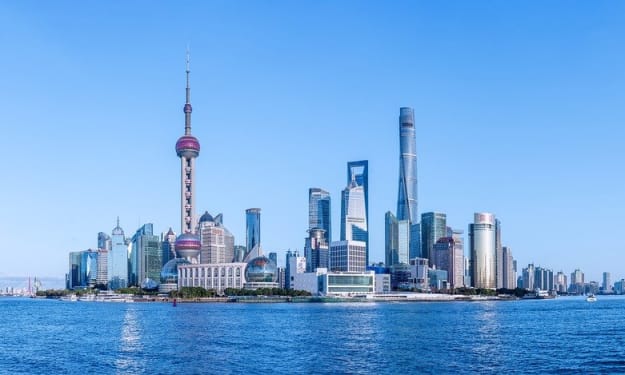Only twenty-five or thirty years ago, China was mired in poverty
Where there is peace there is progress and prosperity

The Chinese workers came to work in the gold mines of Aerotown, New Zealand's historic and charming town. He remained there till the 5th. By this time the search for gold was over. Therefore, all the Chinese were deported by an order. Aerotown was evacuated in 1972 and its archeological operation was carried out. Many historic buildings have been demolished, but they have been rebuilt in the same shape with the same material. Such buildings exist in the Chinese College of Aerotown. These Chinese houses are in the same condition.
When we went to this Chinese village, we took ourselves back one and a half hundred years. When Chinese men lived in these small cave-like houses made of stone and wood along the slopes of the mountain. His wife, children and other loved ones lived thousands of miles away in China. The miners traveled to Australia, New Zealand and the United States, traveling long distances and jungles to support their families. In those days the journey would take months and years. The Chinese miners used to send whatever they earned to their relatives in the homeland. They themselves shivered from the cold, fought the icy seasons, endured the tyranny of the British masters, endured the hardships of life, suffered the pain of being away from home, went through the ordeal of loneliness, sweating blood for years for the comfort of the family. ۔ Abandoned Chinese homes in Aerotown are still on display today. The government earns millions of dollars annually by showing them. But there is no mention or trace of the Chinese who gave their lives inside the mountain mines, during long and arduous journeys and while fighting the harsh weather.
Poverty is very long in China. Not so long ago, only twenty-five or thirty years ago, China was mired in poverty. The death toll from starvation in China in the sixties and seventies was in the millions. In his book Mouse Last Dancer, Australian Chinese author Lee Kanshen wrote, "In the sixties and seventies, there was not a single family in our village that did not die of starvation. It was a time when my childhood and the lives of millions of people like me were spent in extreme poverty and misery. I never got enough to eat. There was no wood available to keep the house warm. My two brothers were picked up from school for not having proper clothes. Most of the night we used to boil the roots of the trees and eat them. Many times she would not be found and we would go hungry. When my grandmother died due to hunger, cold and lack of treatment, we had nothing to bury her shroud. Inevitably she was buried in her old clothes They would have died at the hands of Mao's revolution. Every morning the body of some person was found hanging in the crossroads of our village. They were not tried or their crime was known. People did not go near the corpse out of fear. Most of the victims of this blind revolution were innocent. But who would listen and see there. "
Due to war, political turmoil and mismanagement of governments, countries are trapped in a whirlpool of poverty and destitution. In the 19th century, the Opium War led to the rise of poverty and unemployment in China. People started starving. Fed up with hunger and poverty, thousands of Chinese migrated to distant lands to work in the gold mines of the US states of California, Australia and New Zealand. Even after going there, their lives were not easy. Here they were not slaves but lived a life of slavery. They did not have civil rights and complete freedom. They were condemned for the slightest thing. Many were killed just for the sake of bullying and intimidation. The rest faced social and legal punishments. This breed could not thrive in the United States, Australia and New Zealand and had to return to their homeland, where conditions were such.
Although the cycle of poverty in China is not over yet, it has improved a lot in the last twenty-five years. The journey towards economic prosperity is accelerating under the present leadership. Under Chairman Mao, China traded only with friendly countries, which was obviously limited. Since free trade was allowed in China, the country has accumulated foreign exchange reserves. Although modern China has emerged as a major economic power, it is reluctant to interfere in the affairs of others, unlike the United States. China is working hard to improve the country's economy and bring its people to the path of prosperity in an atmosphere of peace, away from the politics of war and power.
Incumbent Chinese President Xi Jinping has set out to eradicate poverty and corruption in the country. His plan is to eradicate poverty from the country by the year 2012. For this, special attention is being paid to the long-term economic policies of China as well as the elimination of corruption and clean government. There is no difference between big and small in this huge campaign against corruption. Many political leaders and ministers have been arrested on corruption charges. Thousands have been arrested and sent to prison. This process has created a wave of happiness among the people. He has worked hard and diligently for the development of the country. The time is not far when the country with huge population is all in the race for development






Comments
There are no comments for this story
Be the first to respond and start the conversation.